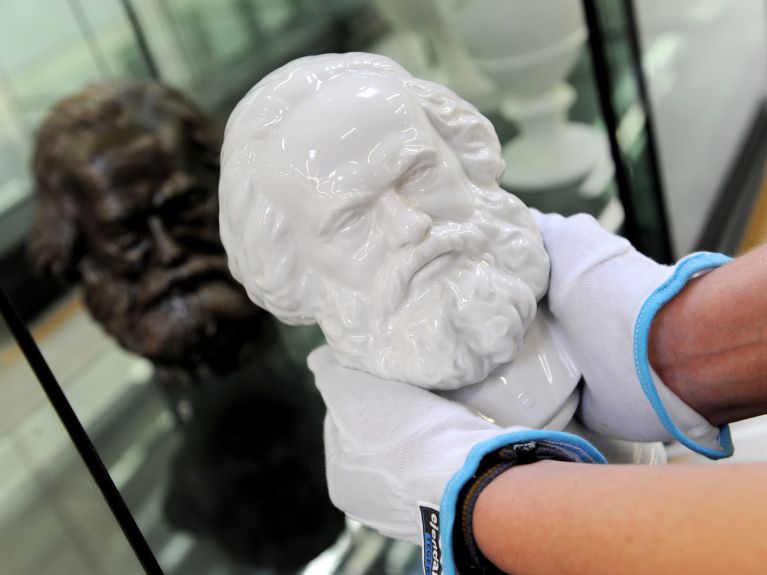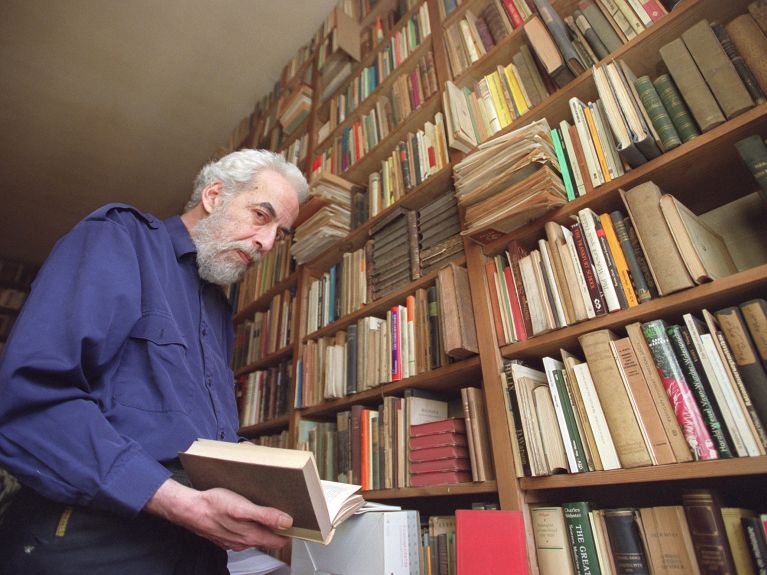“Marx was ingenious, but insufferable”
Marx expert Thomas Kuczynski explains why Karl Marx was a genius, but Marxism nevertheless failed.

Thomas Kuczynski has probably studied Karl Marx (1818–1883) – his works, his ideas and the human being – more than any other. We asked the last director of the Institute of Economic History of the former GDR to answer seven questions.
Mr Kuczynski, you published a new edition of Karl Marx’s Capital at the beginning of 2018. Why?
Karl Marx was no longer able to publish the first volume of his magnum opus in the version he had already conceived by the end of 1881. The main point of argument about the editions that appeared after his death was always the extent to which the changes he had made to the French edition ought to be taken into account in the second German edition. He believed that he had added some new elements and presented many things much better. He demanded that the translator always carefully compare the second German edition with the French edition because the latter contained many important changes and additions. I have now done that – to contribute to a better understanding of the book.
How long did you spend on the 800-page work?
Roughly 20 years with interruptions, because I also had to work on other things. But it was certainly more than ten years in all.
Marxism-Leninism failed because capitalism has proved to be extraordinarily flexible.
What can we still learn from Karl Marx today?
We have to read Marx with a mind that is stuck in the present. Let’s take ecology. At first glance, it doesn’t play any role at all for Marx. However, the unfinished Critique of Political Economy, for example, contains a clear statement. He writes that the capitalist mode of production destroys the source of all wealth.
Why did Marxism fail in practice?
Marxism-Leninism primarily failed because capitalism has proved to be extraordinarily flexible and has almost always been able to integrate opposition movements. Take the reduction in working hours, for example. Without the eight-hour day, rationalisation would not have taken place.
When did you first “encounter” Karl Marx?
Marx was omnipresent in our house. My mother edited his works and my father had read them all from cover to cover. One day when my class teacher complained to my parents about my poor handwriting – I was perhaps eight years old and otherwise quite good at school – I simply referred to a manuscript by Marx that lay on my father’s desk. “That’s how I write too,” I am supposed to have told my parents. Marx has been in my head ever since. Of course, it was only later that I examined his ideas.

You have described Karl Marx as a genius. What was so ingenious about him?
What I admire about him is his unique combination of scholarship and politics that is rare in the humanities and social sciences. As a scholar he thought deeply about things, yet at the same time he endeavoured to create broad support for his ideas.
Did he have any weaknesses?
One weakness was his urge for perfection, which Engels criticised early on. He never finished anything. He was also apparently an insufferable person. Although Marx may have shown self-criticism, he was also incredibly convinced of his own abilities. He could certainly be spiteful, even towards friends.
Interview: Martin Orth
